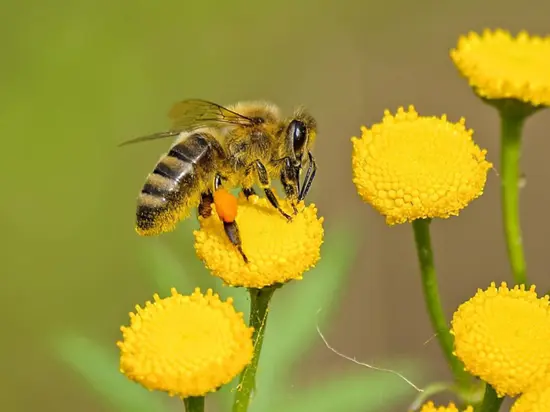QuickCheck: Can bees become caffeine addicts?
Are you the type of person who can’t function without a morning cuppa?
If you answered yes, you are clearly not alone as coffee is one of the most-consumed beverages across the globe. However, humans are not the only species with its fair share of caffeine junkies.
In fact, it has been said that bees will actively seek out and consume caffeine.
Is this true?
VERDICT:

TRUE
Bees are indeed caffeine connoisseurs – seeking out that caffeine ‘buzz’, if you will.
The flowers of plants like citrus and, of course, coffee have evolved to contain low levels of caffeine in their nectar as a defensive mechanism against herbivores. However, this adaptation has an intriguing side effect on bees.
Studies have found that bees can experience something akin to a caffeine rush when consuming the nectar from these plants, which increases their foraging activity (much like how caffeine improves some people’s productivity).
This is because caffeine is a psychoactive substance. The term refers to any substance that can change how the brain functions, which subsequently results in changes to perception, cognition and/or behaviour.
Caffeine appears to stimulate certain receptors in bees’ brains, enhancing their ability to learn and remember where they found the rewarding nectar. In other words, buzzed-up bees are more efficient at locating and remembering the flowers that provide the caffeinated nectar.
If that sounds like the beginning of a caffeine addiction… well, it essentially is.
The effect of caffeine on bees is not just a fleeting phenomenon; their long-term memory is also
positively affected, and what is more is that they will inform hive mates about the location of these particular nectar sources, creating more caffeine-loving bees.
However, this is not a bad thing at all as caffeine is objectively healthy for bees – it has been proven to enhance their immune system and make them more resistant to certain types of bacterial and fungal infections.
The implications of these findings are significant for bee conservation as understanding the role of caffeine in bee health and behaviour can inform strategies to support their populations.
As for the rest of us, we have these coffee-loving bees to thank for helping to pollinate our coffee plants!













Leave a Reply